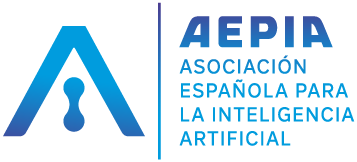Nominations are sought for EurAI Fellows 2023. The EurAI Fellows program was initiated in 1999 to recognize individuals who have made significant, sustained contributions to the field of artificial intelligence (AI) in Europe. The EurAI Fellows Program honors only a tiny percentage of the total membership of all EurAI member societies (up to a maximum of 3%). Each Fellow will receive a Certificate signed by the EurAI Chair. The names of the recently elected Fellows are published each year on the EurAI Webpages and in the EurAI Bulletin. At each ECAI conference, a Fellows lunch will be sponsored by EurAI to honor the recently elected Fellows.
Who is Eligible to Be a EurAI Fellow?
Candidates must be current members of a EurAI member organization to be eligible for consideration. Usually, only individuals who have contributed to AI for a decade or more after receiving their PhD (or are at an equivalent career stage) will be selected.
Who Can Make a Nomination?
There are two ways that an individual can be nominated:
– An EurAI member society can make a nomination. Please note that for each member society, the number of nominations is limited to a maximum of three.
– A nomination can be made by two EurAI Fellows, who must be from different countries.
Nominations must be submitted by Friday, April 28, 2023.
The EurAI Fellows will be announced by the end of June.
How Will Nominations Be Evaluated?
The EurAI fellows committee will evaluate all nominations. The key evaluation criterion will be whether the nominee has achieved exceptional distinction in AI in Europe. The distinction may be evidenced in several ways — fellows’ accomplishments range from pioneering advances in the theory of AI to unusual achievements in AI technology and applications. Leadership in EurAI or EurAI member societies, support of forums for the exchange of ideas, and exceptional service for the international AI community will also be considered in the selection process. Most fellowship nominations are for technical contributions, and for most of these, the case is usually based on the nominee’s scientific achievements as documented in their publication record. In evaluating such a publication record, the fellowship committee will look for clear evidence of scientific excellence, which may, for example, come in the form of a citation record that indicates a profound influence on the field, a publication record of exceptional quality, or technical results of unusual depth, insight, and impact. Publications in top general AI conferences and AI journals such as ECAI, AAAI, IJCAI, JAIR, and AIJ are important. Note that other forms of technical contribution evidence will also be considered, such as patent awards or statements of longstanding contribution to an industrial AI group effort that has been influential in the field generally; again, clear evidence should be provided of such influence. The fellowship committee will, in all cases, ultimately make decisions based on their professional judgment of the overall quality of the case.
